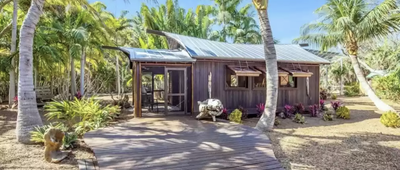Home Buying, Boomer-Style
As people retire and take their benefits later, buying a home later in life is also becoming more common. Before making the investment, there are some considerations that baby boomers in particular should take into account, especially considering the recent news that mortgage rates are on the rise again.
Sponsored: Find a Qualified Financial Adviser
Finding a qualified financial adviser doesn't have to be hard. SmartAsset's free tool matches you with up to three fiduciary financial advisers in your area in five minutes.
Each adviser has been vetted by SmartAsset and is held to a fiduciary standard to act in your best interests. If you're ready to be matched with local advisers that can help you achieve your financial goals, get started now.






















